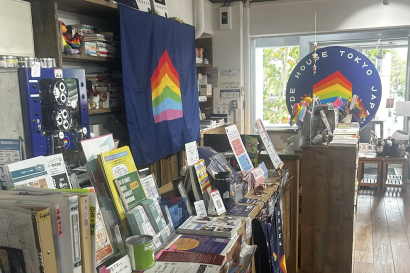It feels like ancient times now, but when I was looking at study abroad programs, I was paralyzed by choice. I knew that I wanted to go to Japan, but any details after that were up in the air. Did I want to be in Tokyo? How about Osaka? Nagoya? If I was in Kyoto, did I want to be in the city center? Or somewhere just outside the special wards? Did I want a language intensive program? What courses did I want to take? There were so many questions to internally debate.
In the end, I decided to apply for study at Kanda University of International Studies (KUIS) under the IES Tokyo program. If I had known what kind of experience I would have on the KUIS campus then, then that choice would not have been nearly as difficult to make. I am so thankful that I chose the IES Tokyo program, because the atmosphere I found when I arrived felt truly unique and open.
As a small private school, KUIS reminded me a lot of home. As it was a smaller school, I would often meet people and run into them again at the cafeteria or while studying somewhere. The campus was compact and easy to navigate, and thankfully did not have the steep hills of my campus back home. Between the rows of sakura, sleek and futuristic architecture, and high-rise office buildings overlooking the campus, it truly felt like an urban Japanese college.
However, I would quickly learn that there was a certain quality to KUIS that I immediately noticed. The campus culture is one of open-mindedness, curiosity, and respect for others. This isn’t surprising, as the university is focused on the study of foreign languages. But it was always easy to make new friends. People were always asking questions about America, and eager to talk about their own home prefectures or cities. I always felt welcome, and practically at home despite being an international student.
Practically everyone I met in Japan had something to say about KUIS and its culture. Caleb-san, the IES Abroad Center Director, told me that KUIS was really unique in that regard, and students at many of Japan’s other universities generally not as interested in learning about foreign cultures. My Japanese professor, Kitagawa-sensei, mentioned that the campus was especially multicultural by Japanese standards. One example that she stressed was the fact that KUIS has a far larger proportion of multi-ethnic students than other universities. When I asked Japanese students why they chose KUIS, there were many answers. Some said they wanted to work abroad. Others said they wanted to explore different histories and cultures. A few said that they felt like KUIS sounded like a place where they could be accepted or be themselves.
As my friends from KUIS eagerly asked questions and explained their interests, I got a good idea of the different futures and dreams they were all looking forward to. One of my friends wanted to work for a Japanese embassy. Another friend wants to be a journalist. Someone I talked to at the Chinese Instrument Club is learning English so that one day he can work for an environmental NGO. Many of my Japanese friends want to go into teaching. Some practice their English so they can teach it in Japanese schools, while others want to help foreigners learn Japanese. And of course, many of my younger friends do not yet know for sure what field they want to work in: for now, most dream of traveling around the world.
Studying for a semester at KUIS was a good opportunity to be immersed in a rather unique environment within Japan. It was easy to feel like I could fit in as the campus culture gives everyone a sense that there is so much more of the world to see than their hometown or their home country. And it’s easy to see the influence that this culture has on my friends, as they all have great goals: it felt like everyone wanted to change the world in their own way, My own hope is that in the future, I will be able to work with all my friends from Japan to fulfill these goals.

Timothy Valero
<p>Timothy is a third-year East Asian Studies/Diplomacy and World Affairs double major from Occidental College in Los Angeles. Prior to studying abroad, Timothy’s studies have centered on historical and contemporary East Asian and Asian American experiences. He further focuses on social movements and minority rights, and is Vice President of Asian Pacific Americans for Liberation, a cultural/political student organization at his home college. He will be spending his time in Tokyo learning about Japan’s unique history and culture, visiting cat cafes, working hard to improve his Japanese language skills, petting cats, eating as much curry rice as possible, and purchasing cute cat-related items.</p>





